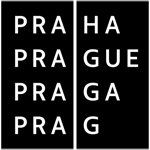Saint-Saëns. Tchaikovsky. Strauss
CZK 900 | 760 | 580 | 390 (SL/E*) | CZK 150 (ST*)
Donor’s ticket CZK 3 000
*SL/E partial view and organ gallery above the stage
*ST standing
A trio of individual romantics
Romanticism is by far the most prominent movement of 19th-century music. One of its main features is considered to be the emphasis on emotions, which is true of the music by most composers of the time. However, a very dominant element of this period is also the focus on individualism; by its very nature, therefore, Romantic composers cannot be perceived as a homogeneous group.
We also work with this factor in the program of our sixth orchestral evening. Each of the three Romantics, Richard Strauss, Camille Saint-Saëns and Piotr Ilyich Tchaikovsky had a completely different approach. Although the late Romantic Richard Strauss was already toying with Expressionism, he found his style in the sentiment typical of the fin de siècle. This also applies to his Romanze. Camille Saint-Säens was considered more of a conservative composer who found inspiration in the masters of the past. Despite this, in Concerto for Cello No. 1, he broke with the conventional form of the instrumental concerto.
Tchaikovsky, sometimes overwhelmingly emotional, with his captivating Symphony No. 4, is a reflection of Ludwig van Beethoven’s Fate Symphony.
We will take you through the forms of Romanticism together with the leading conductress Keri-Lynn Wilson and the winner of the prestigious Bach-Wettbewerb Leipzig competition, cellist Marc Coppey.
Marc Coppey & Deutsches Symphonie-Orchester
Marc Coppey — cello
Recognised for his celebrated interpretations as a soloist, his extensive exploration of chamber music with some of the finest musicians today, and a dedication to widening the cello literature, Marc Coppey is considered to be one of the world’s leading cellists.
A protégé of Lord Yehudi Menuhin and Mstislav Rostropovich, Coppey first shot to international acclaim at the age of 18, winning First Prize and ‘Prize for the Best Bach Performance’ at the prestigious Leipzig Bach Competition (1988). Soon thereafter, Coppey has carved out an impressive solo career to date, working regularly with many of the world’s finest orchestras and conductors – including, amongst others, Alain Altinoglu, Lionel Bringuier, Lawrence Foster, Alan Gilbert, Kirill Karabits, Emmanuel Krivine, John Nelson, Pascal Rophé, Yan Pascal Tortelier, and Yutaka Sado. He was made Officier des Arts et des Lettres by the French Cultural Ministry in 2014. The 2020/2021 season marks Coppey’s first year as Artist-in-Residence with the Orquestra Sinfónica do Porto Casa da Música.
Keri-Lynn Wilson — conductor
Maestro Keri-Lynn Wilson's international career as a guest conductor spans over twenty years, leading some of the world‘s most prestigious orchestras – such as the Los Angeles Philharmonic and the Symphonieorchester des Bayerischen Rundfunks – and operas at the world‘s top opera houses, including the Royal Opera House Covent Garden, the Bayerische Staatsoper, the Bolshoi Theatre, and the Wiener Staatsoper. Ms Wilson‘s work has been praised as „vividly shaped and nuanced“ by The New York Times, and „elegantly incisive“ by The Telegraph. In 2020, she was nominated for an Opus Klassik Award as „Conductor of the Year.“
Ms Wilson’s 2020/21 season includes symphonic and operatic engagements, beginning this fall when she was scheduled to return to Iceland for a performance with the Iceland Symphony Orchestra (cancelled due to Covid-19). Later in the fall, Ms Wilson was scheduled to make her debut with the Opéra national de Paris, conducting Carmen (rescheduled due to Covid-19), and her Berlin debut conducting a gala concert at the Deutsche Oper (cancelled due to Covid-19). In January, she will make her Salzburg debut, conducting the opening concert of the Mozartwoche. Later in the winter, Ms Wilson will return to the Bayerische Staatsoper in Munich, a company she frequently conducts, for performances of Rigoletto in February. In the spring, Ms Wilson will make her Dallas Opera debut, conducting Tosca, as well as returning to the Bolshoi Theatre, another company she frequently conducts, with performances of La Traviata and Un Ballo in Maschera.
















